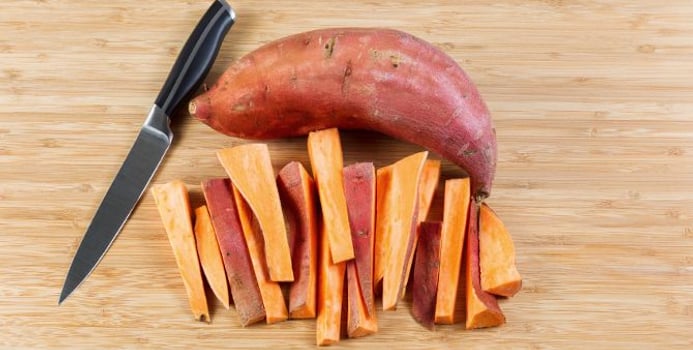Potassium, the third most abundant mineral in the human body, assists in muscle contractions and maintaining the proper electrolyte balance in the body's cells, among other things. This important element is typically well-represented in a well-balanced diet that includes fruits and vegetables, as well as foods fortified with potassium.
Potassium's Effects on the Body
Potassium is a mineral that is imperative to good health. In addition to maintaining the acid and water balance in blood and tissue cells, potassium has been shown to:
- Prevent high blood pressure
- Help maintain a normal heartbeat
- Decrease bone loss associated with aging
- Reduce kidney stone risk
- Assist in muscle building
- Transmit electrical signals between nerves and cells
How Much Potassium is Enough?
If you eat a healthy diet, you should have no problem meeting recommended potassium intake levels naturally. You should never take a potassium supplement outside of what is in your regular multivitamin, unless you are instructed to do so by a doctor.
The average potassium intake is:
- 780mg daily for infants
- 1600mg daily for children
- 3500mg daily for adults
The proper amount of potassium in the body is dependent on the amount of sodium and magnesium in the blood. A Western diet with too much sodium may increase the need for potassium in your diet, but even in this case, you can easily get the necessary potassium naturally.
Not Getting Enough Potassium?
If you are not getting enough potassium or have lost too much potassium while sick from vomiting or diarrhea (that lead to excessive sweating and dehydration), you may show signs of potassium deficiency.
Some early symptoms of potassium deficiency, or hypokalemia, include:
- muscle weakness
- dry skin
- fatigue
- slow reflexes
If left untreated, heart rhythm abnormalities can occur, which require immediate attention.
Getting too much potassium can also be a problem. This condition, known as hyperkalemia, is less common and not likely to be achieved from just diet alone. Generally, if someone gets too much potassium, it is due to taking a potassium supplement or having some type of kidney problem.
What Foods Contain Potassium?
When most people think of adding potassium to their diet, they think of eating bananas. While bananas are a great source of potassium, there are plenty of other foods that also contain more than 200mg per serving of potassium, including:
- Nuts and seeds
- Potatoes
- Tomatoes and tomato products
- Plantains
- Spinach
- Raisins, prunes and other dried fruits
- Papayas
- Brussels sprouts
- Milk and dairy products
- Oranges
- Broccoli
- Melons
- Squash
- Legumes: pinto beans, soybeans, lentils, peas and lima beans
- Fish
- Fortified breakfast cereals
- 100% while grain wheat flour products
Potassium is an extremely important mineral in your diet, but should not be much of a concern unless you have underlying health problems or illness. By eating a well-balanced diet that includes fruits, vegetables, fish and legumes, you should have no problem eating the recommended amount of potassium daily. If you are concerned about not getting enough potassium, talk to your doctor to see if potassium supplementation is necessary.



